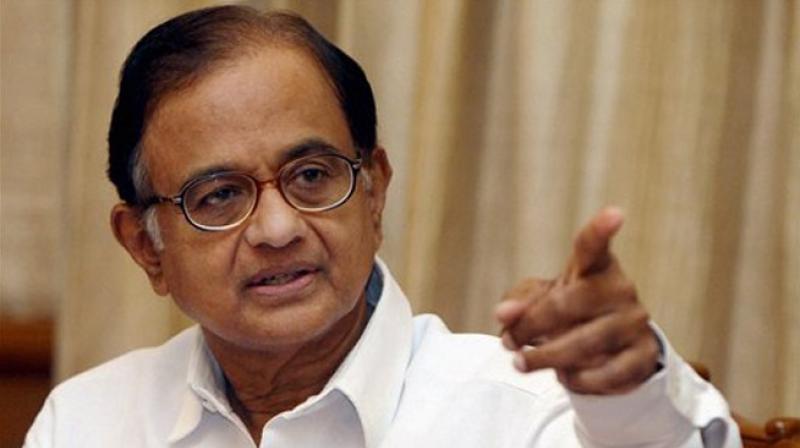Chidambaram slams govt on rising petrol prices
The senior Congress leader said that the govt has become clueless and floundering and is living off an oil bonanza.;

New Delhi: Senior Congress leader P Chidambaram on Friday slammed the Modi government over the high petrol prices, saying it has become clueless and floundering and is living off an oil bonanza. In a series of tweets, the former Finance Minister said the BJP boasts that it is ruling 22 states but why does the NDA government refuse to bring petroleum and petroleum products under GST.
"For the last four years, the BJP government has lived off an oil bonanza. Minus the oil bonanza, the BJP government is clueless and floundering. Even a school child knows the answer. It is because of the 'Tax the Consumer' policy of the BJP government," he said.
Chidambaram said crude oil price at USD 74 per barrel is still lower than USD 105 four years ago. "So, why are Petrol/Diesel prices higher today than they were in May 2014?" he asked.
Petrol price has hit a four-year high of Rs 73.83 a litre, while diesel rates touched an all-time high of Rs 64.69 in the national capital. The BJP-led government had raised excise duty nine times between November 2014 and January 2016 to shore up finances as global oil prices fell, but then cut the tax just once in October 2017 by Rs 2 a litre.
For the last four years, the BJP government has lived off an oil bonanza. Minus the oil bonanza, the BJP government is clueless and floundering .
— P. Chidambaram (@PChidambaram_IN) April 20, 2018
BJP boasts that it is ruling 22 States.
— P. Chidambaram (@PChidambaram_IN) April 20, 2018
Then, why does the BJP government refuse to bring petroleum and petroleum products under GST?
Petroleum Minister Dharmendra Pradhan had said the GST Council - the apex decision making body of the new indirect tax regime - should in the "interest of energy security and consumers" include petroleum products in GST.
Petrol, diesel, natural gas, crude oil and jet fuel are currently not included in the GST, which essentially leads to producers not being able to set-off tax paid on inputs from final tax on product.

